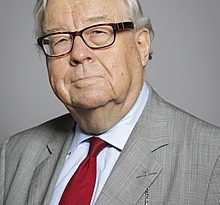David Lammy – 2016 Parliamentary Question to the Department for International Trade
The below Parliamentary question was asked by David Lammy on 2016-09-02.
To ask the Secretary of State for International Trade, how many officials of his Department are (a) on secondment from external companies and (b) engaged as external contractors or consultants; and what the cost is of engaging such people.
Greg Hands
Following her appointment on 13 July 2016 the Prime Minister established the Department for International Trade (DIT). The DIT aggregates UK Trade and Investment (UKTI), UK Export and Finance (UKEF), Trade Policy Units from the Department for Business, Energy & Industrial Strategy (BEIS), as well as some new hires.
Until such time as a transfer of functions order establishes the Secretary of State as a corporation sole, DIT remains a unified Foreign and Commonwealth Office (FCO) and Department for Business, Energy & Industrial Strategy (BEIS) department for accounting purposes.
Since the department was formed in July there have been no secondees appointed from the private sector. Secondees previously in post with syndicate organisations have moved across to DIT on legacy terms.
Contractors in post with syndicate organisations have also moved across to DIT on legacy terms. Since the department was formed in July the number of contractors remains 217 with incumbent costs, as tabled below.
|
DIT Secondees |
Monthly Costs |
DIT Contractors |
Costs for financial year 2015/16 |
|
|
Trade Policy & Ministerial (BEIS) |
1 |
£0.00 |
1 |
£14,982 |
|
International Trade & Investment (UKTI) |
*12 |
£14,299.27 |
196 – as of 01/09/16 |
£24 million |
|
UK Export Finance |
0 |
– |
20 – as of 01/09/16 |
£2.54 million |
|
Total |
13 |
£14,299.27 |
217 |
£26.5 million |
Table Notes:
The majority of secondees are funded by seconding companies. Costs are based on collective monthly salaries of DIT funded secondees.
Actual numbers of contractors fluctuate throughout the year as do costs. Contractor costs reflect the level of senior specialist, technical and commercial knowledge required by the former UKTI department to support British businesses in international markets, and with overseas investors looking to invest in the UK.


